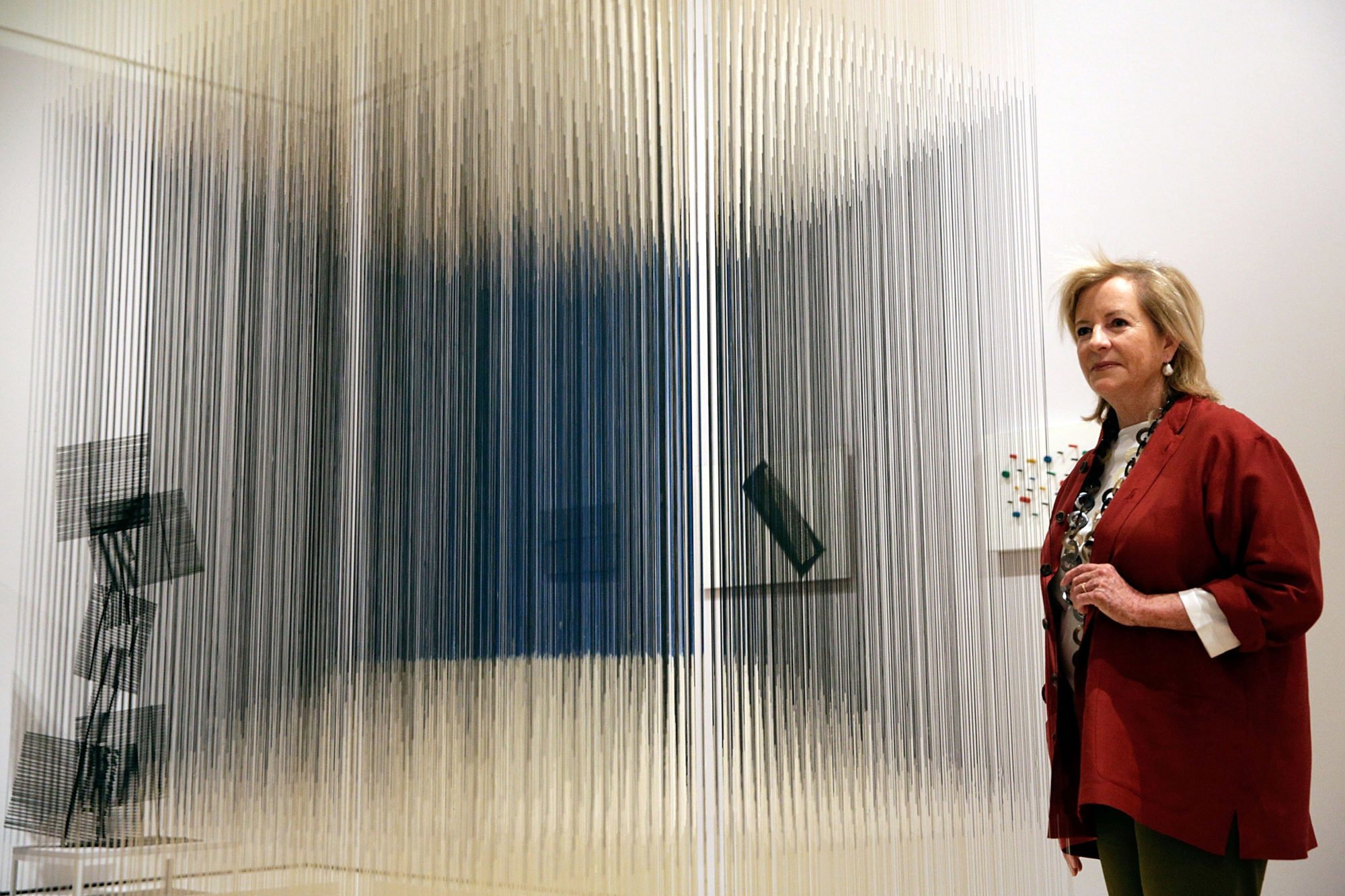
The collections of Latin American art at six museums around the world just got a whole lot richer.
Venezuelan collector and philanthropist Patricia Phelps de Cisneros announced on Wednesday that her foundation, the Colección Patricia Phelps de Cisneros (CPPC), will donate more than 200 artworks to a carefully selected group of museums across the US, Latin America, and Europe.
The far-reaching gift—which encompasses work by 91 artists from 22 countries—aims to further boost the visibility of Latin American contemporary art and ensure that the region’s contributions are well integrated into the narratives of the 20th and 21st centuries presented by major museums.
Jac Leirner’s To and From (MoMA, Oxford) (1991). Photo: Fundación Museo Reina Sofía. Donated by Patricia Phelps de Cisneros in honor of Susana Steinbruch.
The bulk of the gift—90 works—will go to the Museum of Modern Art in New York, where Phelps de Cisneros has been a board member since 1992. It is her second major gift to the institution: In 2016, she donated 102 Modern works and the funds to establish a new research center dedicated to Latin American art. Twenty-four of the artists represented in the latest gift—including Cinthia Marcelle (of Brazil), Amalia Pica (Argentina), and Wilfredo Prieto (Cuba)—are entering MoMA’s collection for the first time.
The other five beneficiaries of the donation are the Reina Sofia (Madrid); the Museo de Arte Moderno (Buenos Aires); the Museu de Arte de Lima (Peru); the Bronx Museum (New York); and the Blanton Museum at the University of Texas in Austin. The institutions were chosen for their strong track record of studying the art of Latin America and the important role they play in their respective regions.
While the earliest donated works date from the ’60s and ’70s and reflect the beginnings of conceptual art, most were made in the 2000s by living artists such as Jac Leirner (of Brazil), Luis Camnitzer (Uruguay), Regina José Galindo (Guatemala), and Eduardo Navarro (Argentina). They range from traditional painting and sculpture to video, room-sized installations, and tapestries.
Alfredo Jaar’s Hé ram (1991). Photo: The Museum of Modern Art. Promised gift of Patricia Phelps de Cisneros through the Latin American and Caribbean Fund in honor of Guillermo A. Cisneros Phelps.
In a statement, Phelps de Cisneros—one of the world’s leading collectors of Latin American art—said the gift is the culmination of her 40-year-long quest to establish cross-cultural dialogue through art.
“My husband Gustavo—always a proponent of a global outlook—and I have made the integration of culture from Latin America into the wider narrative of art history the goal of the CPPC from its inception,” she said. “We want to communicate our pride in our shared cultural heritage and raise awareness about Latin American culture’s crucial contributions to the history of art.”
Gabriel Pérez-Barreiro, the director and chief curator of the Cisneros Collection, told artnet News that the collection’s strength lies in its breadth. “The contemporary collection really reflects the diversity of production in Latin America. Perhaps unusually, it covers most of the countries [on the continent],” he said. “It’s a very broad and open-ended collection—it’s not one that tries to make a single point about contemporary art in Latin America.”
Federico Herrero Untitled (from the series Catarata) (2011). Photo: Fundación Museo Reina Sofía. Promesa de donación de Patricia Phelps de Cisneros en honor a Adriana Cisneros de Griffin.
With such a variety to choose from, museums were given a great deal of leeway in the selection process. The “vast majority of the collection was made available,” Pérez-Barreiro explained, describing the division of works as a “collaborative process” between the Cisneros Foundation and the institutions.
Can museums expect another windfall of Latin American art in the future? “The contemporary collection is a fairly substantial, this is by no means all of the collection,” Pérez-Barreiro said. “We’re not ruling it out.”